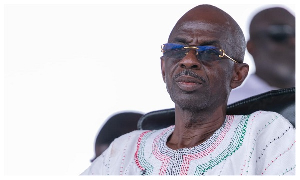Ugandan government officials are pushing for compulsory COVID-19 vaccination of frontline workers to protect them from coronavirus-related death and quicken attainment of the goal of returning society to normalcy.
This comes at a time when the country is struggling with vaccine hesitancy, a situation being worsened by increasing cases of adverse reactions such as blood clotting and deaths in recipients of the jabs in several countries.
The April 13 statistics from the Ministry of Health indicate that of the 90,142 health workers who have so far been registered to take the jabs, only 20,405 (23 per cent) have been vaccinated. The country has an estimated total of 150,000 health workers, according to the ministry.
Both the District Health Officer of Arua, Dr Paul Bishop Drileba, and the Resident District Commissioner of Amuru, Mr Geoffrey Orsbon Oceng, say government should consider shifting from voluntary to mandatory Covid-19 to increase uptake and promote public health.
Dr Drileba told Daily Monitor that since the vaccine is not killing people here as it is the case in foreign countries, government should customise the policy and make the vaccination of frontline workers and civil servants mandatory.
“As public health experts, we believe that the notion that vaccination should be voluntary is not right because if you are a health worker, you are handling other people,” Mr Drileba said.
He added: “And if the teacher contracts Covid-19 and dies, learning will be affected and this will inversely affect parents who are paying school fees. Government should forcefully push people to make everyone in public service be vaccinated.”
Last week, Mr Oceng last week sent a directive, asking all the health workers in the district to take the Covid-19 jabs.
The uptake of the vaccine among teachers is better than among health workers. The April 13 government statistics show that of the 13,172 teachers who have so far been registered for the jabs, 8,517 (65 per cent) have been vaccinated.
Asked about these actions that conflict the earlier proclamation by government that vaccination is voluntary, with the Health minister, Dr Jane Ruth Aceng, supported the actions of the district leaders, saying they are aimed at increasing uptake of the jabs.
“If the RDCs [district leaders] who oversee government programmes come out talk boldly to encourage people to get vaccinated, I must say a big thank you to them because leaders should be seen to act when people are not being responsible for their health and so I would like to congratulate the leaders who are encouraging people to take the vaccine,” the minister said.
The latest statistics from the ministry show that 220,893 people have so far taken the jabs. This means about 21 per cent of the 964,000 doses of AstraZeneca vaccines received through donations have so far been used.
This is a bit low when compared to countries like Rwanda and Tanzania which have vaccinated 349,427 and 651,650 people by April 16, respectively, according to the respective Health ministries of the countries.
Uganda plans to vaccinate 22 million Ugandans to shield them from Covid-19 illness and death. A total of 338 virus deaths have been recorded in the country.
Prof Ben Kiromba Twinomugisha, an expert in health law at Makerere University Law School, said just like lockdown and curfew which infringe on our rights, but are in the interest of protecting public health, vaccination of frontline workers could be made mandatory.
“We have rights, such as the right to access to information about such situations where you have to consent. But you know in our Constitution, in article 43, which talks about the limitation of rights and freedom,” Prof Twinomugisha said.
He added: “Your right to be informed may be limited for purposes of protecting the public interest –public health. So, if your non-immunisation is likely to affect the health of others, then that right of yours which include consent, may be limited.”
But the victims can’t sue the manufacturers because existing laws make the companies have total immunity from liability if something unintentionally goes wrong with their vaccines, information from the government shows.
Prof Twinomugisha said health workers who deal with patients, may be deemed as affecting their patients’ rights. “Even these lockdown, curfew and other covid-19 measures affect our rights but they are in the interest of protecting public health,” the expert said.
European Court of Human Rights last week ruled that compulsory vaccinations would not contravene human rights law — and may be necessary in democratic societies, according to a report by AFP last week.
AFP quoted Mr Nicolas Hervieu, a legal expert at the ECHR to have said judgment “reinforces the possibility of a compulsory vaccination under conditions of the current COVID-19 epidemic.”
Africa News of Tuesday, 20 April 2021
Source: monitor.co.ug
Amid hesitancy, Ugandan officials push for mandatory COVID-19 vaccination
Entertainment












